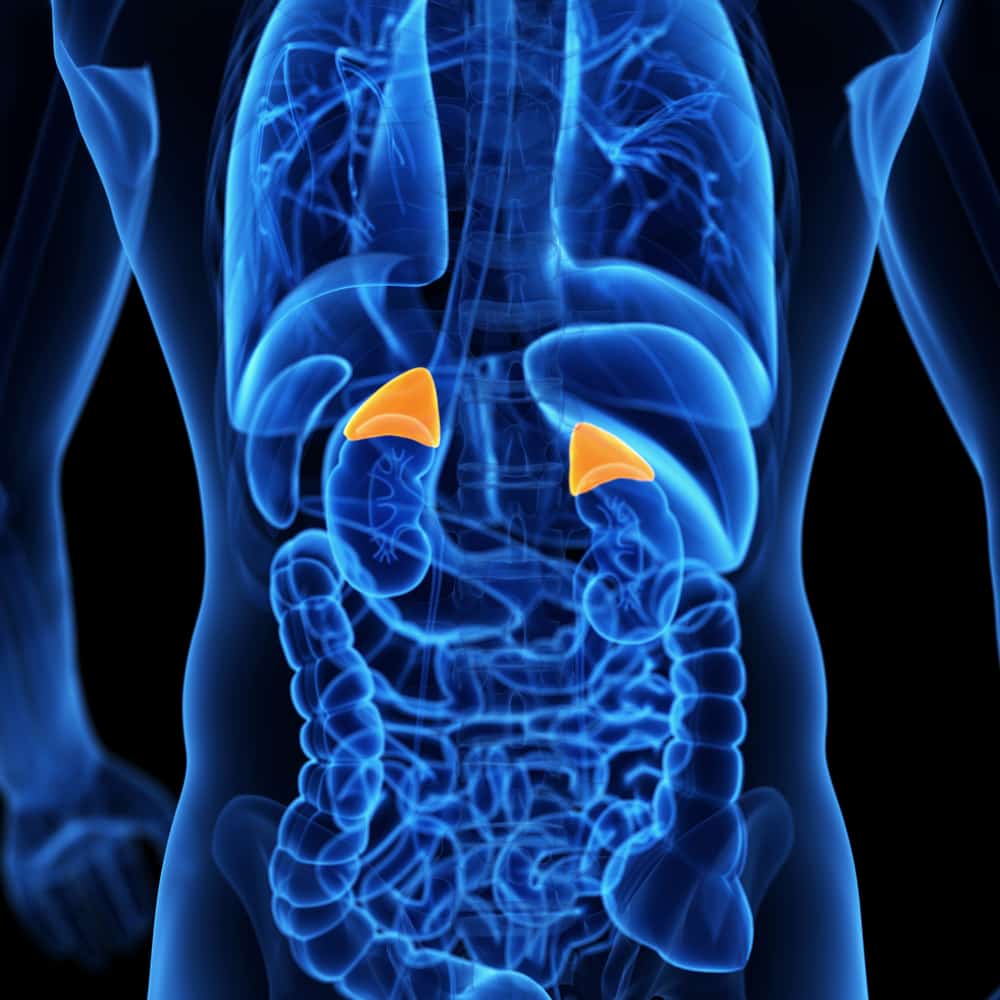Contents:
- Medical Video: Where is the Adrenal Gland
- Get to know the parts of the adrenal gland
- External adrenal gland function (adrenal cortex)
- 1. Mineralocorticoid function
- 2. Glucocorticoid function
- 3. Gonadocorticoid function
- Function of the inner adrenal gland, medulla
- 1. Epinephrine
- 2. Norepinephrine
Medical Video: Where is the Adrenal Gland
Did you know that there are two adrenal glands? Yes, each gland is located above the kidney and measures about half the size of the thumb. Although small, the adrenal gland is responsible for producing various hormones in the body.
A healthy adrenal gland helps various bodily functions to work properly. So, the disturbance in this gland will have a large impact on the body.
Get to know the parts of the adrenal gland
The adrenal gland consists of two parts, namely the adrenal cortex (outside) and the adrenal medulla (inside). The adrenal cortex is responsible for producing three types of hormones, namely mineralocorticoids (cortisol) which regulate sodium in the body, glucocorticoids that increase blood glucose levels, and gonadocorticoids that regulate sex hormones.
If the adrenal cortex stops functioning, the metabolic processes that are important for our lives will stop and result in death. While the adrenal medulla secretes epinephrine (adrenaline) and norepinephrine (noradenalin) in times of stress.
External adrenal gland function (adrenal cortex)
1. Mineralocorticoid function
Mineralocorticoids are steroid hormones that are responsible for maintaining sodium, and maintaining the balance of salt and water in the body. Primary mineralocorticoids are known as aldosterone, and are secreted by the glomerulose zone (the outermost layer) of the adrenal cortex.
This steroid hormone is part of the renin-angiotensin (RAS) system or renin angiotensin aldosterone-system (Raas). This is a hormone system that regulates blood pressure and fluid balance in the body. Generally, renin is produced by the kidneys when excess salt and water will be removed from the body. Renin triggers the production of angiotensin, which ultimately stimulates the adrenal gland to release the hormone aldosterone. Decreasing arterial blood pressure also stimulates renin secretion.
So, together with the renin-angiotensin system, aldosterone helps the kidneys to retain important minerals like sodium. Aldosterone increases sodium reabsorption and excretion of potassium by the kidneys. This helps constrict blood vessels by increasing sodium and water retention, which can increase blood pressure levels. So, this hormone is related to regulating blood pressure levels too.
2. Glucocorticoid function
Glucocorticosteroids are another class of steroid hormones that play an important role in regulating glucose metabolism. Glucocorticosteroids are produced in the fasciculate zone of the adrenal cortex, for example cortisol.
Cortisol is responsible for regulating carbohydrate, protein and fat metabolism. Corticosteroids play an important role in regulating the body's inflammatory response.
Corticosteroids can affect the immune system, and can be used as an immune suppressing agent. Secretion is controlled by the adrenocorticotropic hormone (ACTH) secreted by the pituitary gland.
3. Gonadocorticoid function
Androgenic gonadocorticoids or steroids are secreted by the reticular zone or the deepest layer of the adrenal cortex. Androgens are male sex hormones, and facilitate the development of secondary sexual characteristics in men. They play an important role in the development of male sex organs during embryonic development.
Small amounts of female hormones are also produced by the adrenal cortex. However, the effects of androgenic steroids secreted by the adrenal cortex can be covered by a greater amount of testosterone and estrogen secreted by each testicle and ovary.
Function of the inner adrenal gland, medulla
The medulla is the inner part of the adrenal gland, and is associated with the production of epinephrine and norepinephrine.
1. Epinephrine
Both epinephrine and norepinephrine together are called catecholamines, and they are released by the adrenal gland in response to physical or mental stress. Epinephrine, also known as adrenaline, plays an important role in the conversion of glycogen to glucose, and as such, increases blood sugar levels. This is needed by the body to maintain smooth blood supply to the brain and muscles.
It can also increase heart rate and blood pressure, and relax the smooth muscles of the lungs and digestive tract. This hormone widens the small arteries of the heart, lungs, kidneys, and muscles. Passion, physical and mental stress, and emotional disturbances trigger the secretion of this hormone, which prepares our body for the response 'fight or flight' also called juga fight or run.
2. Norepinephrine
Along with epinephrine, norepinephrine also activates a mechanism for response ‘fight or, by increasing alertness and arousal. When injected as a drug, norepinephrine or noradrenaline can have a constrictive effect on the coronary arteries. This causes small blood vessels in the kidneys, digestive system and skin to contract. This facilitates the movement of food through the digestive system and increases sweat. It also stimulates the release of glucose and blood flow to the muscles.
In short, the adrenal gland is responsible for secreting important hormones to carry out several important metabolic processes. In addition, they help the body deal with physical and mental stress. Chronic stress can make the gland's work so hard that it can eventually fatigue or become too tired to meet the needs of adrenal hormones.












